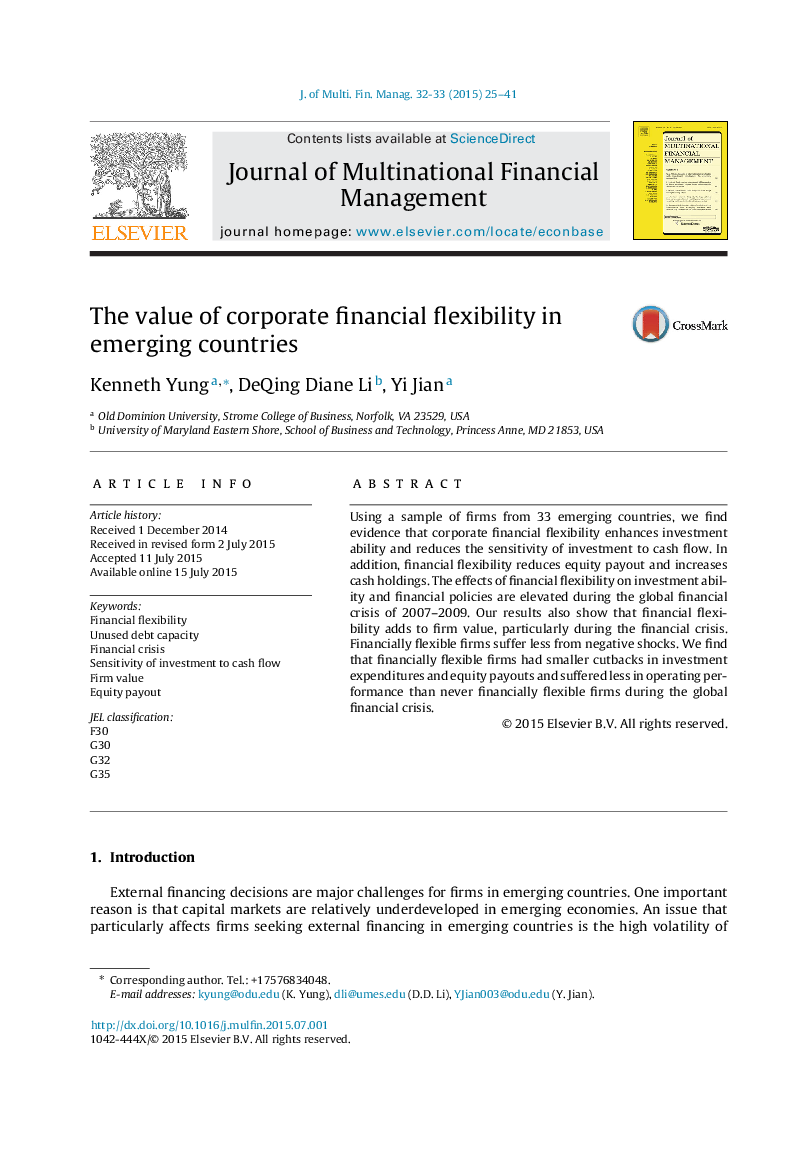| Article ID | Journal | Published Year | Pages | File Type |
|---|---|---|---|---|
| 968499 | Journal of Multinational Financial Management | 2015 | 17 Pages |
•Financial flexibility enhances firm-level investment ability in emerging countries.•Financial flexibility reduces the sensitivity of investment to cash flow.•Financial flexibility reduces equity payout but increases cash holdings.•Financial flexibility adds to firm value, particularly during financial crises.•Financially flexible firms suffer less when facing negative shocks.
Using a sample of firms from 33 emerging countries, we find evidence that corporate financial flexibility enhances investment ability and reduces the sensitivity of investment to cash flow. In addition, financial flexibility reduces equity payout and increases cash holdings. The effects of financial flexibility on investment ability and financial policies are elevated during the global financial crisis of 2007–2009. Our results also show that financial flexibility adds to firm value, particularly during the financial crisis. Financially flexible firms suffer less from negative shocks. We find that financially flexible firms had smaller cutbacks in investment expenditures and equity payouts and suffered less in operating performance than never financially flexible firms during the global financial crisis.
